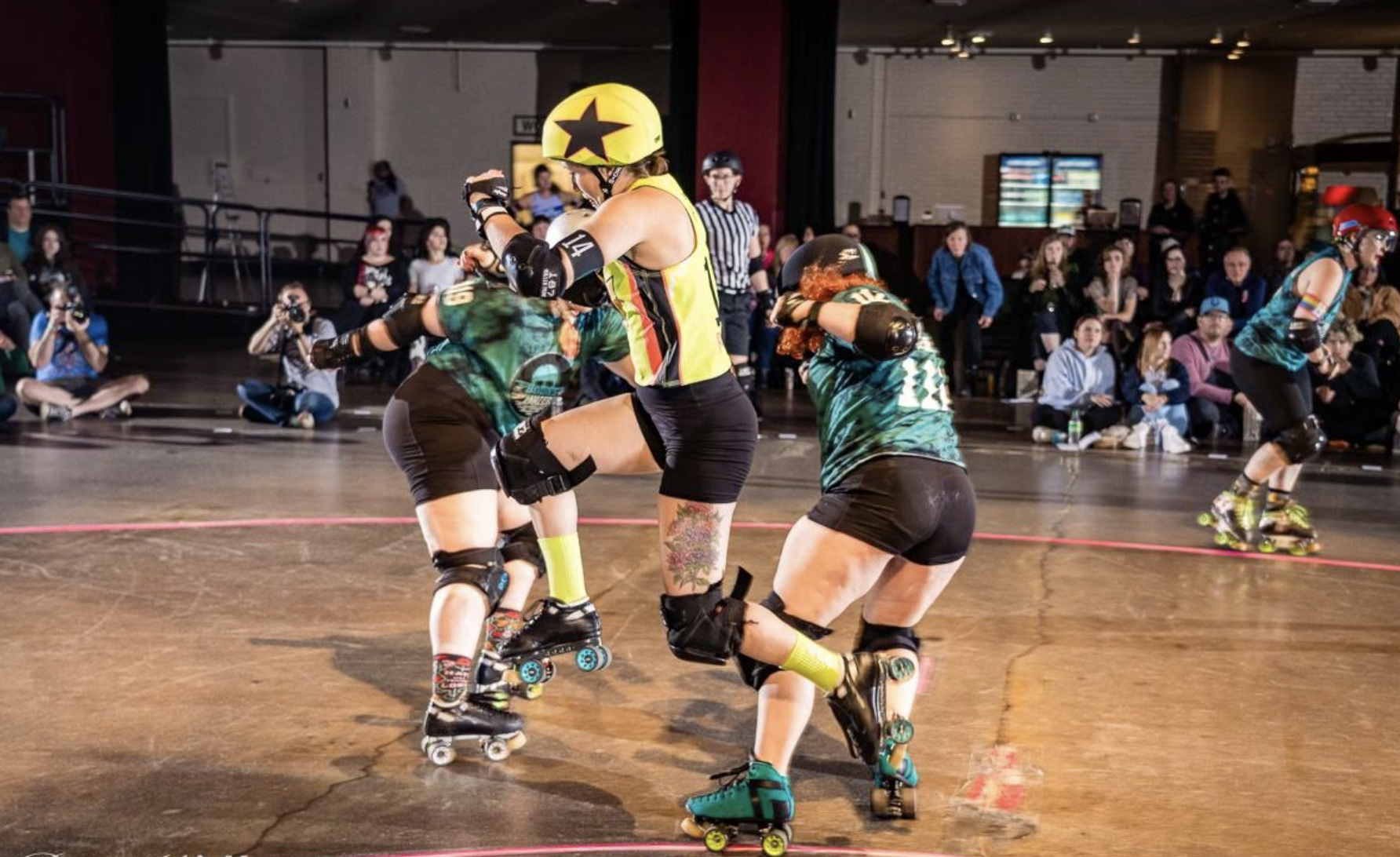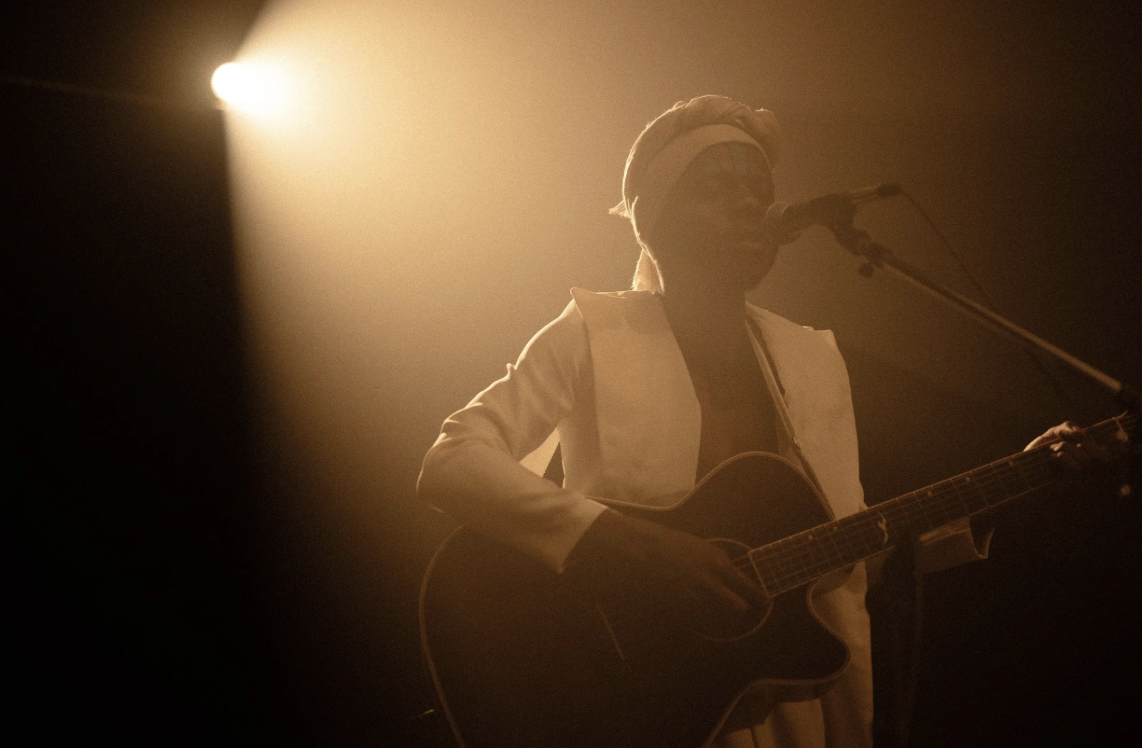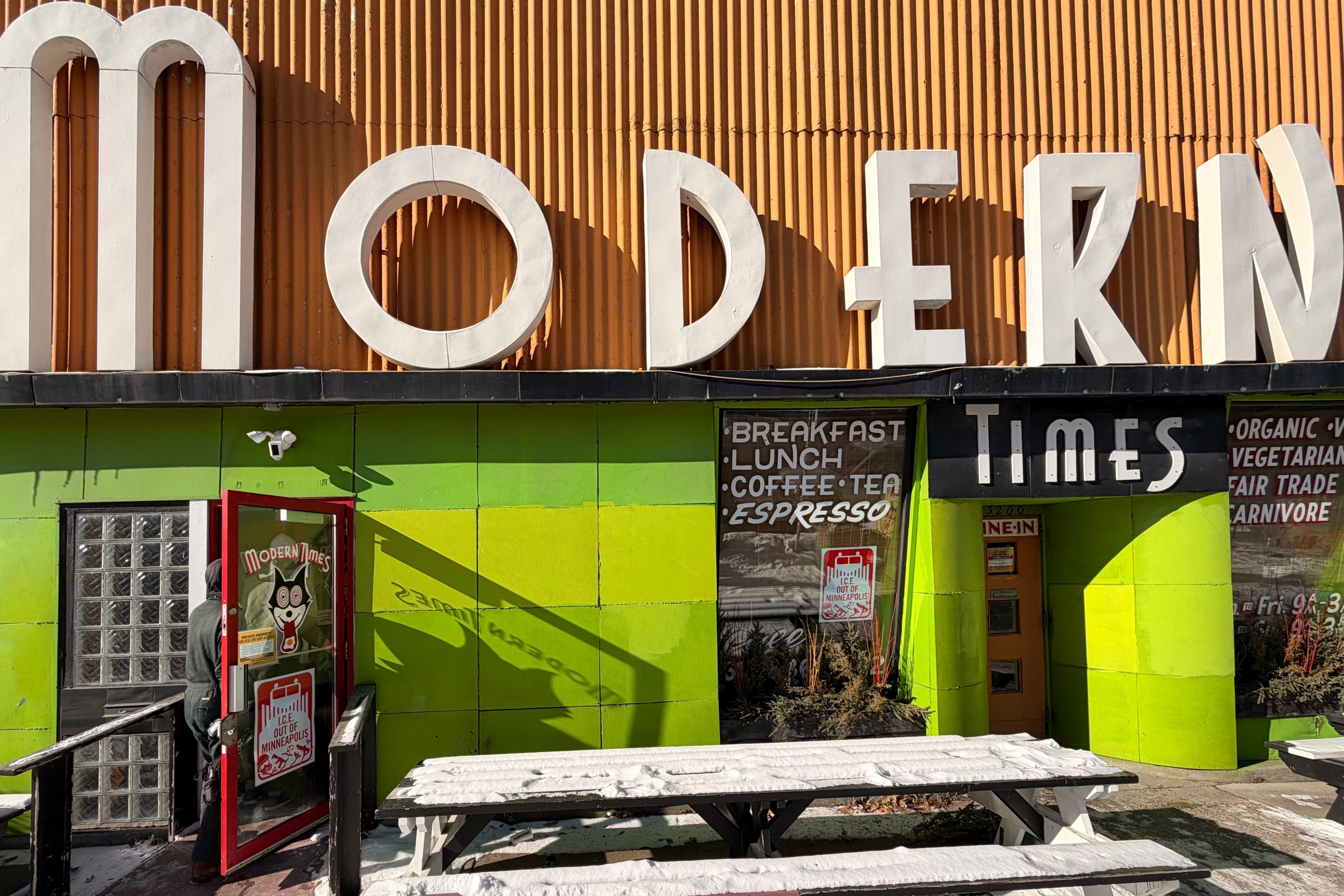Bright, multi-colored lights pulse throughout the room, matched by a DJ’s thudding beats. Vendors sling T-shirts and patches near a DIY tattoo booth. There’s a crackling energy in the air—like walking into a concert. Except, rather than performers onstage at St. Paul's Roy Wilkins Auditorium, the entertainment one night this past October involved roller skates, hard hits, and a mascot named “Rat Benatar.”
It was time for the 20th season of Minnesota Roller Derby.
Way back in 2003, Teen Vogue published its first issue, Apple launched iTunes, “Crazy in Love” was the song of the summer, and the Minneapolis-based Donnelly sisters were off to Texas to check out a resurging sport featured in Jane magazine: flat-track roller derby. “We were in awe the whole time with our mouths open—THAT is what I want to do,” Donnely told a league reporter in 2013, reflecting on MNRD's first decade. Upon their return to Minnesota, the Donnely sisters hosted their first recruiting party at Psycho Suzi’s, and in 2004, Minnesota RollerGirls was born.
The sport has evolved since the early '00s, but the grassroots ethos has stayed consistent. “Early MNRD was fueled with some solid riot grrl, punk rock entergy,” says Sarah "MeshugEnough" Cohen, who’s been skating with MNRD since its third season. “I think you can still feel those roots and that history.”
The history of roller derby can be traced back to the 1930s, when two-person teams skated 57,000 laps around a track. Eventually, the lap requirement was significantly shortened—and crucially, hitting was introduced. At its peak, roller derby drew crowds of over 20,000 spectators who looked on as paid athletes raced and bashed their ways around the track.
The sport all but died in the 1980s before being resurrected by Texas Roller Derby in 2001. MNRD (then MNRG) became one of the founding members of Women’s Flat Track Roller Derby (WFTDA), and was the first team to have a home in a professional venue: The Roy, where they still practice and hold bouts today.
There are now 412 WFTDA teams in six continents. It’s one of the few competitive sports that explicitly allows “transgender women, intersex women, and gender expansive participants,” according to the WFTDA’s gender statement. Unsurprisingly, the pandemic had a significant impact on roller derby—contact sports and COVID don’t play well together—and many leagues are still in the process of rebuilding, if they managed to survive at all. The last championship game was held in 2019; the next one won’t be until November 2024. Today, MNRD still manages four home teams, a junior roller derby team (Frostbite), a beginner adult training league (Windchill), and two travel competition teams.
Alex "Lexi Cuter" Laci remembers the fishnets and fake fights of the early roller derby years; now the A-team consistently ranks top 20 in the world (currently sixth in the region). “I wish people knew the athleticism required and how competitive the travel teams are,” says Laci, who joined MNRD in 2008. MNRD has appeared at the international championship games seven times since 2006. The A-team’s 2017 championship trip was showcased in the documentary Minnesota Mean, and many skaters featured still participate in the league today.
For many elite skaters, roller derby is a year-round sport. Until international competition resumes in April, Minnesota's all-star skaters will play with their home teams: Bodies of Water, Maul Rats, Roller Vortex, and Wednesday Warnings. (Full disclosure: I started playing with Roller Vortex this September.) Each team competes with each other, battling over the course of five bouts to win the coveted Golden Skate. The Wednesday Warnings are this season’s defending champions.
“MNRD presents roller derby in a fast, fun, and exciting production that you don’t have to fully understand to enjoy,” says Walter "Spike" Kwaan, who's been an official with MNRD since its second season. “As competition grew, we attracted more athletes and increased in competitive thinking.”
The evolution of roller derby—from punk rock to competitive sport—hasn't been without its growing pains. The sport needs to be entertaining to spectators while still challenging the athletes.
“Evolving roller derby leagues like MNRD find their own balance between entertainment spectacle and serious sport,” Cohen says. “I believe that for women’s sports especially, it’s hard to hold both those facets in your public-facing image.”
The increasing competitiveness of the sport has also altered the gameplay itself. The overall pace is slower than in 2003, with skaters sticking more close together. The blocking (defense) is much stronger, the jammers are more agile, and the rules have adjusted to keep gameplay safe—though there are still just as many hits. “The technical skills in this amateur sport have climbed through the roof in recent years,” Cohen says.
Lexi Cuter agrees: “We treat this sport a lot more like the athletic endeavor it is.”
The athletes still find ways to express themselves, especially at home bouts. Many skaters wear “boutfits”—think fishnets, skirts, and playful makeup—and halftime includes a dance party. These productions require a huge amount of volunteer labor, meaning skaters work on and off the track: bout set up, events, marketing, training new skaters, and everything that goes with running a business (minus the salary).
“When people think about supporting local and grassroots DIY, I hope they think of roller derby,” Cohen says.
MNRD's "Snow Place Like Home" Bout
When: 6 p.m. Saturday
Where: Roy Wilkins Auditorium, 175 W. Kellogg Blvd., St. Paul
Tickets: $16-$20; find more info here







